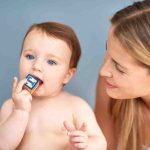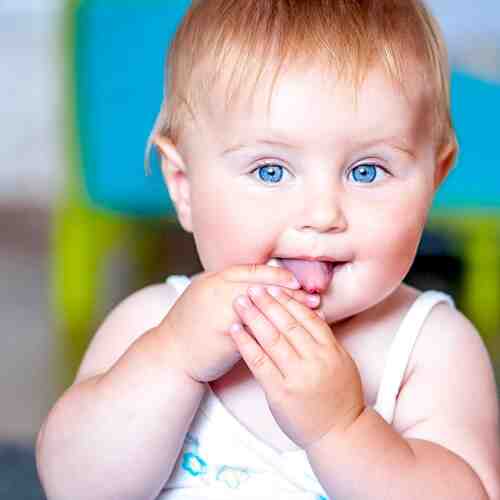Can Teething Cause Fever? What Science Says
As parents watch their babies grow, teething is often one of the first significant milestones they encounter. While this process is natural and an essential part of a baby’s development, it often comes with a variety of symptoms such as drooling, irritability, and discomfort. One common question many parents ask during this time is whether teething can cause a fever. While teething can certainly make babies uncomfortable, the relationship between teething and fever is a topic of ongoing debate among parents and health professionals alike. In this article, we’ll explore the scientific perspective on whether teething can actually cause a fever, what the research says, and how to manage symptoms effectively.
What Happens During Teething?
Teething is the process by which a baby’s primary (baby) teeth emerge through the gums. Typically starting between 4 and 7 months, teething can continue until a child is around 3 years old when their full set of 20 baby teeth erupts. As each tooth pushes through the gums, it can cause pain and inflammation, leading to various symptoms.
The most common signs of teething include:
- Drooling
- Irritability and fussiness
- Chewing on objects
- Swollen or tender gums
- Disrupted sleep
But one symptom that causes concern for many parents is fever. Many parents worry that the discomfort and irritation associated with teething may cause a higher body temperature. But is this true? Let’s break down what science says.
Can Teething Cause a Fever?
The short answer is: No, teething should not cause a true fever.
According to multiple studies and the guidance of pediatricians, teething itself does not directly cause a significant rise in body temperature. However, it can cause a slight increase in temperature, but this should not be mistaken for a full-fledged fever.
A fever is generally considered a body temperature of 100.4°F (38°C) or higher. If your baby has a temperature that exceeds this level, it’s typically a sign of an infection or illness rather than teething.
The Science Behind Teething and Temperature Changes
While teething doesn’t cause a fever, some babies may experience a mild, low-grade temperature rise when they are cutting teeth. This can be attributed to several factors:
- Inflammation of the Gums: As the teeth break through the gums, the area becomes inflamed and irritated. Inflammation is a natural response by the body’s immune system, which can lead to a slight increase in body temperature. However, this increase is usually minimal and should not exceed 100.4°F (38°C).
- Increased Drooling and Bacterial Exposure: Teething often leads to excessive drooling, and as babies chew on objects to relieve discomfort, they may be exposed to bacteria. Although drooling is normal, it can cause slight irritation to the throat or digestive system, which could lead to mild changes in temperature. Again, this would typically not be a fever.
- Immune Response: As the body responds to the discomfort of teething, there could be a mild immune response that may cause slight changes in temperature. However, the immune system’s response to teething is not the same as the response to a viral or bacterial infection, which causes a true fever.
When to Be Concerned: Fever vs. Teething
If your baby experiences a rise in temperature while teething, it is usually very mild. A temperature of around 99°F to 100°F (37.2°C to 37.8°C) is not unusual and is generally considered safe. However, a true fever is a sign of infection, and it’s important to distinguish between a mild temperature increase due to teething and a fever that might indicate another underlying health issue.
Red Flags: When It’s Not Teething
If your baby has a temperature of 100.4°F (38°C) or higher, you should be cautious. This may indicate an infection such as a cold, ear infection, or other viral illnesses, rather than teething. Some red flags to watch out for include:
- A fever that lasts for more than a day or two
- A fever that is higher than 100.4°F (38°C)
- Other symptoms like vomiting, diarrhea, cough, or runny nose
- Severe irritability or signs of distress
- Refusal to drink fluids or eat
If your baby’s fever is above 100.4°F or persists for an extended period, it’s best to consult a pediatrician to rule out any infections or underlying conditions.
The Role of Teething Tablets, Gels, and Remedies
In response to teething discomfort, some parents use teething tablets, gels, or natural remedies to help soothe their baby. While these products can provide relief for gum pain, they should never be relied upon to treat fever. Some teething gels, particularly those containing benzocaine, should be avoided because they can be harmful to infants and may cause adverse reactions. Always consult with your pediatrician before using any remedies for your baby’s teething symptoms.
How to Manage Teething Symptoms Safely
Although teething is a natural process that should not cause serious health concerns, it can still be uncomfortable for your baby. Here are some safe ways to manage your baby’s teething symptoms:
- Cold Teething Rings: Chilled (but not frozen) teething rings or toys can help numb your baby’s gums, providing relief from the discomfort of teething. The cold sensation can also reduce swelling in the gums.
- Cold Washcloth: A clean, cold washcloth can be given to your baby to chew on. The coldness will soothe their gums, while the soft texture offers comfort.
- Gum Massage: Using a clean finger, gently massage your baby’s gums in circular motions. This can help relieve the pain caused by the pressure of the emerging tooth.
- Pain-Relieving Medications: If your baby is very uncomfortable, consult with your pediatrician about using acetaminophen or ibuprofen. These medications can help relieve pain and discomfort but should only be used according to your pediatrician’s recommendations.
- Breastfeeding or Bottle-Feeding: For some babies, nursing or bottle-feeding can provide comfort during teething, as the act of sucking can help soothe the gums.
Conclusion
In summary, while teething can cause some mild increases in body temperature, it does not cause a true fever. A fever is generally a sign of an underlying infection, and if your baby’s temperature exceeds 100.4°F (38°C) or if you observe other symptoms, it’s important to contact a healthcare provider. Understanding the difference between a mild rise in temperature due to teething and a fever due to an illness is essential in ensuring your baby’s health and well-being. If you’re ever in doubt about your baby’s symptoms or temperature, don’t hesitate to reach out to your pediatrician for guidance.





